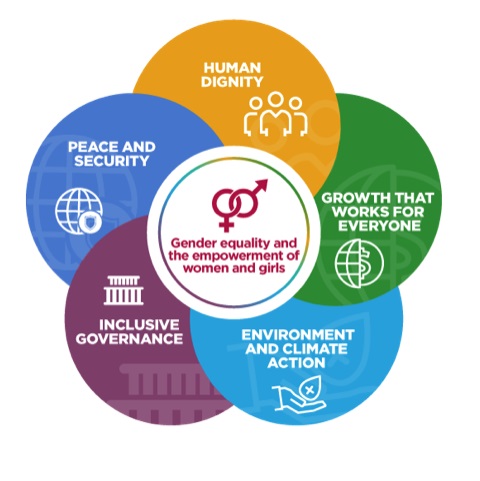With a mandate on focussing on the poorest and most vulnerable and on fragile states, the International Development Minister recently unveiled the much anticipated policy indicating the country’s priorities for addressing international development. Resulting from broad consultations involving some 65 countries, the policy seeks to tackle inequality and exclusion as root causes of poverty.
Known as Canada’s Feminist International Assistance Policy, it is premised on the belief that when women and girls are given equal opportunities to succeed, they evoke a multiplier effect thereby driving economic growth, encouraging peace and cooperation and improving the quality of life for families and communities
Six action areas are identified:

It is Canada’s intention to ensure that the funds available are used to complement and leverage other development funds as well as integrate with other objectives such as trade. Initiatives should therefore foster inclusive growth, create jobs and improve incomes. The policy indicates that innovation will be factored in providing international assistance, encouraging greater experimentation and scaling-up of new solutions to development challenges. As such, partnerships with academia, research organizations, private sector as well as the Canadian International Development Research Centre will be of increasing significance.
While agriculture was not featured in the policy, by virtue of its role in food and nutrition security, environmental sustainability as well as employment, it is de facto an important driver that underpins the planned results. IICA has long embraced inclusion and innovation as cross-cutting themes within its technical cooperation programs, notwithstanding its Flagship project on Inclusion in Agriculture. The willingness of the Canadian Government to forge effective partnerships in delivering international assistance, paves the way for our Inter-American organization.
According to Global Affairs Canada, “This new approach will enable Canada to maximize the effectiveness of its international assistance, provide more integrated and responsive assistance, invest in innovation and research, deliver better reporting on results, develop more effective partnerships, and concentrate on those regions of the world where we can make the greatest difference in reducing poverty and inequality, particularly for women and girls.”
Delegations are encouraged to visit the website : http://international.gc.ca/world-monde/issues_development-enjeux_developpement/priorities-priorites/policy-politique.aspx?lang=eng to get familiar with the priorities and in countries where the Canadian mission has a resident Development representative, to start the dialogue towards identifying regional or bilateral opportunities.











